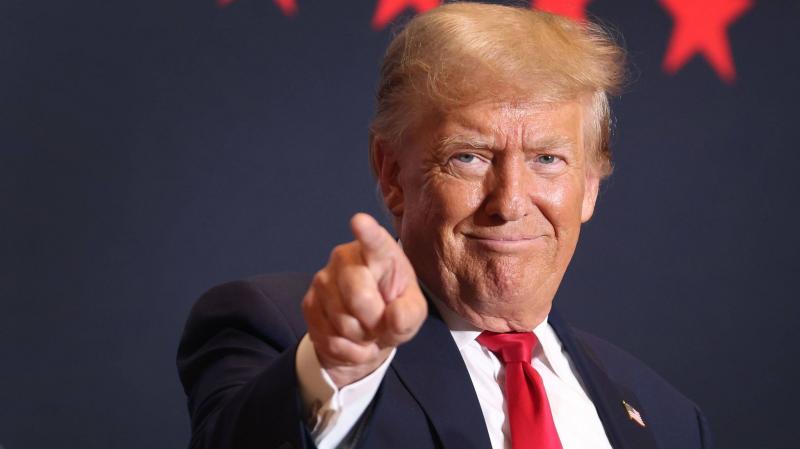Polls continue to show Donald Trump leading significantly over his competitors for the Republican Party nomination for president. However, many of his opponents are still delaying attacks on the former president, perhaps hoping to eliminate all of their non-Trump competitors before facing Trump himself. The problem with this plan is that it is unlikely to succeed. Trump's opponents need to do something different to bring him down. Unlike in 2016, when there were signs indicating a potential defeat (which never happened), Trump has significant advantages this time.
He is ahead by more than 40 points nationally in polls against his closest competitors (Ron DeSantis and Nikki Haley), and he receives over 60% of Republican votes. Even if his competitors were able to unite under one nomination, Trump would still win with majority support.
“No other Republican candidate has a favorability rating that high among the party base. No other Republican has a ‘very favorable’ rating that was even half as high as Trump’s was in the Marquette survey.”
This is completely different from where things were at this stage during the 2016 elections. Trump was receiving between 25% to 30% of Republican votes nationally. Moreover, it is not at all clear whether any of his 2024 competitors can unify the Republican primary voters who do not support Trump.
Consider the poll conducted by Marquette Law School last month. Trump received 57% of the votes in this national survey when facing all his Republican challengers. When directly compared only to DeSantis, Trump's support jumped to 65%. When facing Haley only, he garnered 70% of the votes.
We did not see such numbers in 2016 when Trump was on his way to winning the Republican nomination. By late March 2016, an ABC News/Washington Post poll found that Trump was trailing both Marco Rubio (51% to 45%) and Ted Cruz (54% to 41%) in hypothetical one-on-one matchups.
In other words, there was a legitimate argument back then for Trump’s opponents, who hoped to compete with him until the end, whereas today it seems illogical. The same applies when we focus on early state polls, although Trump is weaker there than he is nationally. Trump is the first or second choice for a majority of Republican voters or primary voters in both Iowa (55% in the latest Des Moines poll) and New Hampshire (54% in the latest CNN/UNH poll).
The reality is that the depth of Trump's support among Republican voters is actually stronger than the numbers might suggest against his key competitors. One of the best ways to measure a candidate’s support ceiling is to look at their "favorable" and "very favorable" ratings. The latter, in particular, is important in primaries when most candidates share the same party label with voters and are popular.
Trump's “very favorable” rating was 51% among Republicans in the Marquette poll last month. His average “favorable” rating has recently been 76% among Republicans nationwide. No other Republican candidate has a high favorable rating among the party base, with none achieving a “very favorable” rating that even reaches half of Trump’s score in the Marquette survey.
These numbers are reflected in Iowa and New Hampshire. Trump has the best "favorable" ratings of any candidate among Republican voters. (In Iowa, he also garnered the best "very favorable" ratings. No poll has asked about "very favorable" ratings in the Granite State).
Trump's numbers were much weaker at this stage of the 2016 cycle. His "favorable" support was 15 to 20 points lower, depending on the poll. "Very favorable" ratings were lower by 20 to 30 points.
It’s hard to believe, but a Bloomberg poll in November 2015 showed that many other Republican candidates and former President George W. Bush had stronger positive and very positive ratings among Republican voters. Even Trump had worse positive ratings than Paul Ryan and Mitt Romney.
In the last Republican primary debate—attended by all but Trump, like all previous debates—his opponents in 2024, except Chris Christie, seemed more interested in attacking each other than confronting Trump. This was true in all four Republican debates this year.
As a result, Trump has solidified his lead nationally, with no signs of retreating from being the frontrunner. It is unclear if directly going after Trump will work to the advantage of his major competitors. Christie, who has consistently criticized Trump, has abysmal favorability ratings among Republicans. This might be part of the reason why Trump’s opponents allow him to remain safe.
Clearly, everything Trump's competitors are doing now simply isn't working. They need to do something different. With just over a month remaining before the caucuses in Iowa, time is running out for them to close the gap with Trump.




